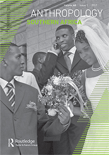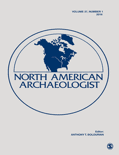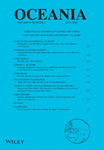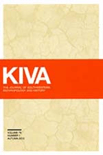
JOURNAL OF THE POLYNESIAN SOCIETY
Scope & Guideline
Celebrating the Diversity of Pacific Cultures
Introduction
Aims and Scopes
- Cultural Heritage and Identity:
The journal emphasizes the study of cultural narratives, practices, and identities within Polynesian societies, exploring how these elements shape community dynamics and individual belonging. - Indigenous Knowledge Systems:
A significant focus is on indigenous methodologies and epistemologies, promoting research that respects and incorporates the knowledge systems of Pacific peoples. - Historical Analysis:
The journal publishes works that investigate historical events and processes, including colonization, migration, and their impacts on contemporary Polynesian societies. - Archaeological Studies:
Research highlighting archaeological findings and interpretations relevant to Polynesian history and settlement patterns is a core component, contributing to a deeper understanding of the region's past. - Linguistic and Textual Studies:
The journal includes studies on the languages and textual traditions of Polynesian cultures, examining their evolution and significance in contemporary contexts. - Environmental and Ecological Perspectives:
There is an increasing focus on the relationship between Polynesian societies and their environments, including traditional ecological knowledge and contemporary environmental challenges.
Trending and Emerging
- Mental Health and Wellbeing:
There is a growing focus on the intersection of mental health and cultural identity, particularly in the context of Pacific peoples in diaspora, emphasizing the importance of culturally sensitive approaches to mental health. - Indigenous Research Methodologies:
A significant trend is the exploration of indigenous research methods, showcasing practices such as 'Talanoa' and 'Va,' which prioritize community engagement and cultural relevance in research. - Sovereignty and Indigenous Rights:
Research addressing issues of sovereignty and indigenous rights has gained traction, reflecting the ongoing struggles and aspirations of Pacific peoples in asserting their rights and identities. - Cultural Resilience and Adaptation:
Emerging themes include studies on cultural resilience, examining how Polynesian societies adapt and thrive in the face of globalization and climate change. - Cross-Cultural Collaborations:
There is an increasing emphasis on cross-cultural research collaborations, fostering dialogue between Polynesian scholars and broader academic communities.
Declining or Waning
- Colonial Narratives:
Research centered on colonial narratives and their immediate impacts appears to be less frequent, suggesting a shift towards exploring post-colonial perspectives and indigenous resilience. - Traditional Economic Systems:
Studies focused on traditional economic practices and systems, while foundational, have diminished, possibly as researchers pivot to contemporary economic issues and globalization effects. - Static Cultural Representations:
There is a noticeable decline in works that represent Polynesian cultures in static or monolithic terms, reflecting a broader understanding of cultural dynamism and change.
Similar Journals

PACIFIC HISTORICAL REVIEW
Illuminating Diverse Narratives of the Pacific RegionPACIFIC HISTORICAL REVIEW, published by the University of California Press, serves as a pivotal academic journal in the field of History. With a robust ISSN of 0030-8684, this journal has been dedicated to examining the intricate narratives and themes of the Pacific region since its inception in 1967. Recognized for its scholarly contributions, it holds a commendable Q3 ranking in the History category for 2023 and is positioned in the 58th percentile among its peers in the Scopus database. The journal offers a platform for rigorous research and interdisciplinary dialogue, aiming to illuminate the diverse historical experiences and cultural complexities of the Pacific. While it does not provide open access, it remains an esteemed publication for researchers, professionals, and students seeking in-depth analyses and scholarly discourse in the rich tapestry of Pacific history.

ANTIQUITY
Fostering Knowledge Exchange in Archaeology and HumanitiesANTIQUITY is a prestigious academic journal published by Cambridge University Press that has been at the forefront of archaeological and humanities scholarship since its inception in 1927. With its roots firmly planted in the United Kingdom, the journal has achieved remarkable recognition, maintaining a Q1 ranking in both the fields of Archaeology and Arts and Humanities as of 2023. With an impressive Scopus ranking of #3 out of 173 in General Arts and Humanities and #28 out of 354 in Archaeology, it underscores its significant impact and influence in shaping contemporary discourse in these domains. Although it is not an Open Access journal, ANTIQUITY provides crucial insights into the evolution of human societies through a comprehensive range of archaeological studies, reviews, and theoretical discussions. By facilitating knowledge exchange among researchers, professionals, and students, ANTIQUITY not only enriches academic literature but also fosters a deeper understanding of our past.

Anthropology Southern Africa
Advancing anthropological inquiry across Southern Africa.Anthropology Southern Africa is a prestigious journal published by Routledge Journals, Taylor & Francis Ltd, and is dedicated to advancing the field of anthropology through rigorous scholarship and critical discourse. Established in 2013 and converging through 2024, this journal sets a high standard in its category, currently holding a Q2 classification in Anthropology and a Q1 ranking in Cultural Studies for the year 2023, ensuring its position as a significant contributor to social science research. With a robust Scopus ranking that places it in the 82nd percentile for Cultural Studies and the 67th percentile for Anthropology, Anthropology Southern Africa serves as an essential platform for researchers, professionals, and students engaged in anthropological inquiry and cultural analysis. Although it is not openly accessible, the publication prides itself on high-quality submissions that explore diverse cultural phenomena and anthropological perspectives, thereby inviting interdisciplinary engagement and fostering a global academic dialogue.

Revue Archeologique du Centre de la France
Connecting Histories: Central France's Archaeology at Your FingertipsRevue Archeologique du Centre de la France is a prestigious academic journal dedicated to the field of archaeology, with a special focus on the rich historical and cultural heritage of central France. Published by FED EDITION REVUE ARCHEOLOGIQUE CENTRE FRANCE, this journal has been an open-access platform since 2004, ensuring that researchers, professionals, and students can freely access cutting-edge archaeological findings and scholarly discussions. With an acute emphasis on disseminating knowledge and fostering ongoing dialogue in archaeology, Revue Archeologique du Centre de la France serves as a vital resource for those keen to explore the complexities of French archaeological studies. Housed in Tours, this journal not only highlights regional heritage but also situates it within broader archaeological frameworks, making it an essential contribution to the field. Researchers can look forward to engaging with a diverse array of articles that cover both theoretical and applied aspects of archaeology, bolstering the understanding of our shared past.

Novye Issledovaniya Tuvy-New Research of Tuva
Advancing Knowledge in Anthropology and Cultural StudiesNovye Issledovaniya Tuvy-New Research of Tuva is a prominent open-access journal published by CH K LAMAZHAA since 2009, dedicated to advancing the fields of Anthropology, Cultural Studies, and History. With an impressive Q1 ranking in these disciplines and a robust presence in the Scopus database—ranking 65th in History and achieving a 96th percentile in Anthropology—it serves as an essential platform for researchers and scholars seeking to explore and disseminate new insights regarding the diverse cultural heritage and historical context of the Tuva region in the Russian Federation. The journal is committed to providing accessible, high-quality research, ensuring that vital information reaches a wide audience without barriers. By spanning the years 2016 to 2024, Novye Issledovaniya Tuvy not only reflects contemporary developments but also contributes significantly to the global discourse on cultural identity and historical narratives.

SOUTH AFRICAN ARCHAEOLOGICAL BULLETIN
Fostering Academic Excellence in the Study of Human History.Welcome to the SOUTH AFRICAN ARCHAEOLOGICAL BULLETIN, a premier academic journal dedicated to the dynamic field of archaeology in South Africa and beyond. Published by the SOUTH AFRICAN ARCHAEOLOGICAL SOC, this journal boasts an impressive Q1 ranking in both Archaeology (arts and humanities) and Archaeology categories as of 2023, placing it among the top tier of scientific journals in its discipline. With an extensive publication history spanning from 2002 to 2023, it serves as a crucial platform for disseminating pioneering research and scholarly discussions that illuminate the rich tapestry of South African archaeological heritage. Although it does not currently offer open access, the journal’s rigorous peer-review process, combined with its standing in the Scopus rankings—where it ranks 78 out of 413 in the arts and humanities and 75 out of 354 in social sciences—underscores its commitment to academic excellence. Researchers, professionals, and students alike will find this journal an essential resource for exploring innovative methodologies, archaeological discoveries, and theoretical advancements shaping the understanding of human history.

NORTH AMERICAN ARCHAEOLOGIST
Bridging Time: From Prehistory to PresentNORTH AMERICAN ARCHAEOLOGIST, published by SAGE PUBLICATIONS INC, is a prestigious journal that serves as an essential resource for professionals and scholars in the field of archaeology. With its ISSN 0197-6931 and E-ISSN 1541-3543, the journal aims to disseminate high-quality research that contributes to the understanding of the historical and cultural significance of North America from prehistory to the present. As of 2023, it holds an impressive Q2 category in Archaeology and ranks within the Q1 tier for Archaeology (arts and humanities), positioning it among the top journals in its field. Its Scopus rankings further emphasize its significance, reflecting a commendable percentile standing that underscores its influence in both arts and humanities and social sciences. The journal is committed to offering a platform for innovative research and scholarly discussion, making it invaluable for researchers, professionals, and students dedicated to advancing archaeological knowledge.

OCEANIA
Illuminating the Intersections of Culture and ThoughtOCEANIA, published by WILEY, is a distinguished journal that has been fostering scholarly discourse in the fields of anthropology and the history and philosophy of science since its inception in 1930. With an impressive impact factor and secure positions in the Q2 quartile for both categories, OCEANIA stands out as an influential resource for researchers and professionals alike. Its latest Scopus rankings reflect its commitment to quality, placing it in the 76th percentile for history and philosophy of science and the 66th percentile for anthropology. Though it does not operate under an open access model, the journal provides robust access options for institutions and individuals to explore its rich array of peer-reviewed articles that contribute to the understanding of cultures and scientific thought across the Pacific region and beyond. As we advance toward its continued convergence into 2024, OCEANIA remains a pivotal platform for innovative research and academic debate, cultivating insights that are crucial for scholars and students navigating the complexities of these interconnected disciplines.

Kiva-Journal of Southwestern Anthropology and History
Charting New Territories in Archaeological ResearchKiva - Journal of Southwestern Anthropology and History is a distinguished academic journal published by Routledge Journals, Taylor & Francis Ltd, that serves as a vital resource for scholars in the fields of anthropology, archaeology, and history. With an ISSN of 0023-1940 and an E-ISSN of 2051-6177, this journal has established itself as a significant avenue for scholarly communication since its inception in 1964. It consistently ranks in the top quartiles, including Q1 in Archaeology and Q2 in Anthropology, reflecting its high impact and rigorous peer-review process. Covering a wide array of topics pertinent to the Southwestern United States, Kiva invites original research articles, reviews, and methodological papers that advance understanding of the region's rich cultural heritage and historical narratives. While currently not open access, its commitment to disseminating quality research makes it an essential reading for researchers, professionals, and students aiming to explore the multifaceted dimensions of southwestern studies.

California Archaeology
Illuminating California's Archaeological JourneyCalifornia Archaeology is a premier academic journal dedicated to the multifaceted study of archaeology within the context of California's rich historical and cultural landscape. Published by Routledge Journals, Taylor & Francis Ltd, this journal conveys cutting-edge research from 2009 to 2024 and is recognized for its impact in the field, with a commendable Q2 ranking in both archaeology and arts and humanities as of 2023. Scholars and practitioners are encouraged to disseminate their findings and insights through this journal, contributing to a deeper understanding of archaeological practices and interpretations in California. With access options designed to enhance the visibility of research, California Archaeology serves as an essential resource for professionals, students, and researchers devoted to advancing knowledge in archaeology, making it a cornerstone of academic discourse in the discipline.